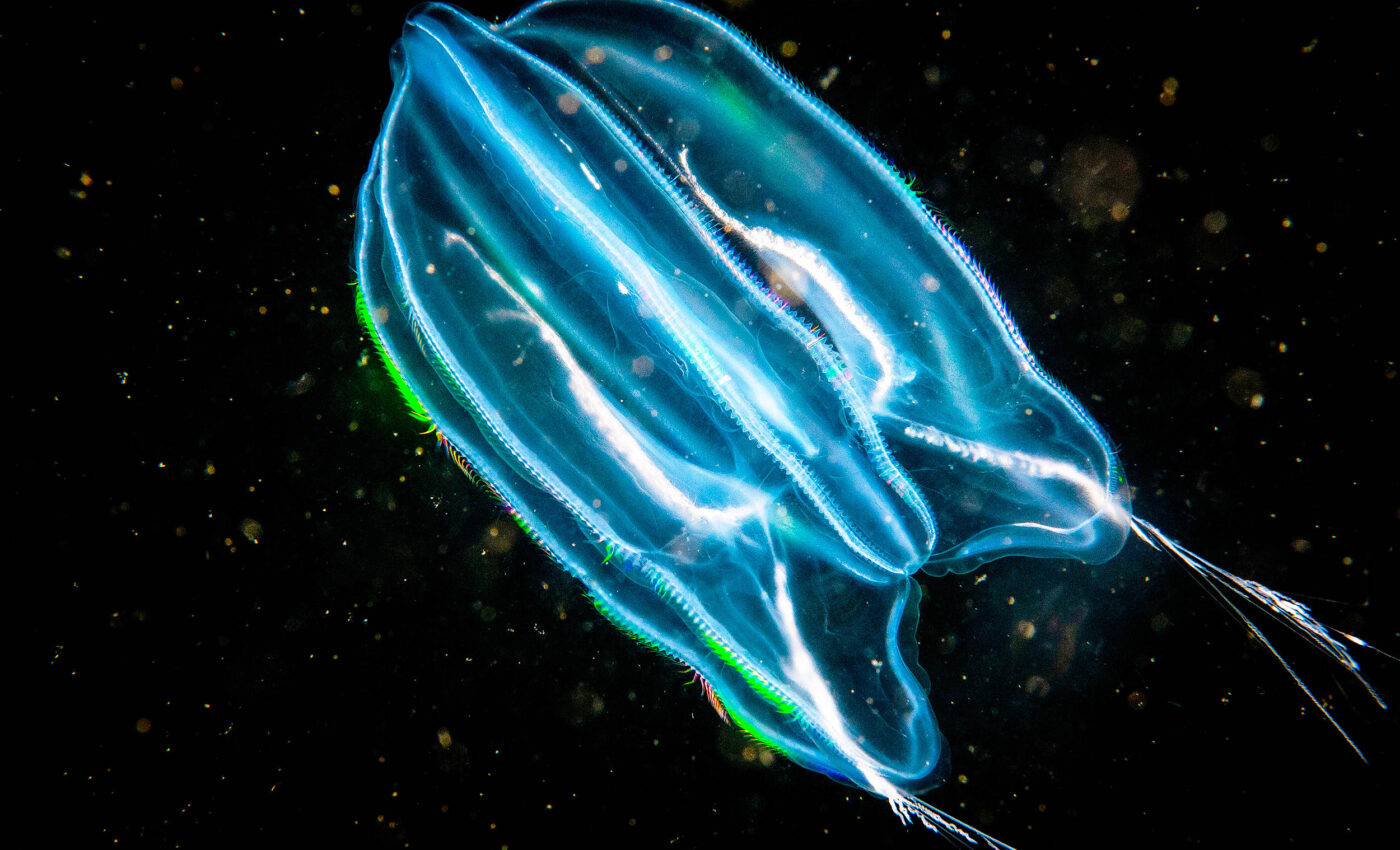
Tiny creatures called amphipods eat jellyfish to survive the polar winters
In the remote and frigid waters of the Arctic, during the long and dark polar night, a discovery has been made that challenges our understanding of the Arctic marine food web.
For the first time, scientists have evidence to show that tiny crustaceans, known as amphipods, are preying on both live and dead jellyfish to survive the harsh Arctic winter, a period when food sources are scarce.
This revelation highlights the adaptability of marine life in the face of extreme environmental conditions and suggests a significant re-evaluation of the role of jellyfish within Arctic ecosystems.
Amphipods and the adaptability of marine life
The study, published by Frontiers, was conducted during an expedition to the AWIPEV research station on Svalbard in January and February 2022.
The team embarked on this journey to explore the dietary habits of amphipods, small crustaceans ranging from five to 20 millimeters in length, in the depths of Kongsfjorden, Svalbard.
The research has illuminated the critical survival strategies that these organisms use during the months-long polar night when traditional food sources dwindle.
“Here we show for the first time that jellyfish — thought to be typically poor in nutrients — are nevertheless an important food source for amphipods during the Arctic polar night,” said study first author Annkathrin Dischereit, a doctoral student at the Alfred Wegener Institute.
Dissection of the amphipods
The research team discovered that amphipods not only feed on “jelly-falls,” the naturally sunken carcasses of jellyfish, but some species also actively prey on living jellyfish.
This discovery is pivotal, highlighting a previously underappreciated interaction within the Arctic marine food web.
The waters around Svalbard were found to be teeming with various jellyfish species, from true jellyfish like the lion’s mane jellyfish to hydrozoans and ctenophores.
The researchers focused on four species of amphipods, utilizing nets and baited traps for collection.
Through the dissection of the amphipods and DNA metabarcoding of their gut contents, the team was able to identify the remains of their prey, revealing a diet rich in jellyfish among the studied species.
The evidence suggests that jellyfish, contrary to previous beliefs, play a vital role in the diet of Arctic amphipods, especially during the challenging winter months.
Rapidly changing Arctic
The study also highlights the broader implications of these findings in the context of the rapidly changing Arctic environment.
The phenomenon known as “Atlantification” — the northward spread of jellyfish species from the Atlantic Ocean due to warming waters — may further amplify the importance of jellyfish as a food source within Arctic food webs.
As the Arctic warms at a record pace, understanding the dynamics of these food webs and the role of jellyfish within them becomes increasingly crucial.
“There has been a recent paradigm shift in the marine biology literature that recognizes that far from being a ‘trophic dead-end,’ jellyfish are in fact eaten by a wide range of organisms,” said study co-author Dr. Charlotte Havermans.
“Our observations corroborate this major change in how scientists view the role of jellyfish in the food web.”
“Because jellyfish tissue is quickly digested, they may have been overlooked as a prey item in previous studies, which unlike our study relied on visual identification of food items to determine the diet of Arctic invertebrates.”
Broader implications
As the Arctic continues to undergo profound environmental changes, further research into the diets of marine invertebrates and fish will be essential in unraveling the complex interactions that sustain these unique ecosystems.
The research lays the groundwork for future studies, opening new avenues for exploring the resilience of Arctic marine life in the face of climate change.
“To get a better idea of the role of jellyfish in the Arctic marine food web, and how this may change when their populations increase in the ‘new Arctic,’ we plan to further investigate the diet of other invertebrates and fish that potentially feed on jellyfish,” said Dischereit.
“Questions remain, for example, whether jellyfish are a regular part of the diet of amphipods or whether they are simply a survival food during the polar night.”
The study is published in the journal Frontiers in Marine Science.
Image Credit: C. Havermans
—–
Like what you read? Subscribe to our newsletter for engaging articles, exclusive content, and the latest updates.
—–
Check us out on EarthSnap, a free app brought to you by Eric Ralls and Earth.com.
—–













